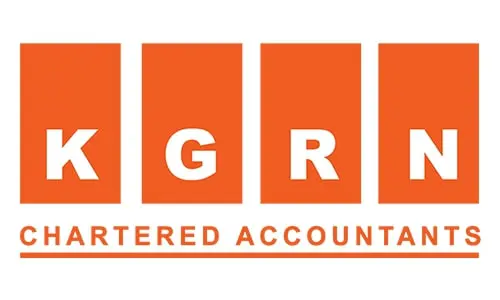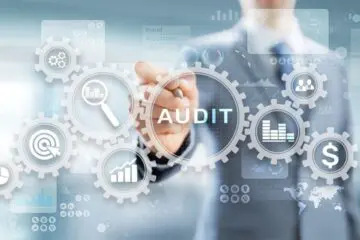Almost all companies are now taking their business online. The last few years have seen the rapid growth of remote and mobile-based applications and solutions. The world revolves around data now, and the manipulation and processing of data are what helps companies become successful. The last decade or so has witnessed the massive growth of Artificial Intelligence-based applications with Big Data coming up with solutions for several different problems. Almost every field and industry now adopt Big Data, automation, AI and Robotics-based solutions to power their technology. While its adoption into finance has taken longer, it is finally here. Here’s an in-depth look at how Robotic Process Automation will shape the future of accounting and finance.
For enquires call @ +971 45 570 204 / Email Us : [email protected]
What is Robotic Process Automation?
RPA, or robotic process automation, is a method or software that uses business rules and policies to create well-defined decision-making systems. Using such systems, the software can make autonomous decisions about the completion of various tasks and schedules that are essential to the business process. A choreography that combines detailed business procedures assists businesses in making the right business decisions without human intervention. The three components of Robotic Process Automation are as follows:
- Robotic: Any software or hardware configuration that has the intelligence to mimic human actions, and do work generally associated with humans.
- Process: The sequence of logical actions or steps that lead to the successful completion of a particular activity efficiently.
- Automation: The process by which machines carry out operations on their own, without human intervention, through the systematic completion of procedures as per a schedule.
For enquires call @ +971 45 570 204 / Email Us : [email protected]
Benefits of Robotic Process Automation
- Faster Processing: The adoption of such processes will lead to a drastic shortening of lead and deployment times. The use of such software will enable production and accounting to get done at a much faster pace.
- Higher Accuracy: Humans are prone to errors due to a large number of factors, which may or may not be within our control. However, one of the most significant advantages of using machines to handle tasks like accounting is that they bring with them higher accuracy. By using such technology, you can say goodbye to worries regarding inaccurate entries and faulty calculation.
- Cost-effective: While such technology might have a higher deployment cost, they help with reducing administrative costs, which in the long run leads to an economical approach. Therefore, while it might cost you a bit more up-front, down the line, adopting such technology will lead to your business saving a lot of money.
- Better Quality and Compliance: Accounting and finance are disciplines that require high focus and accuracy. Since machines do not make mistakes when programmed right, such systems produce high-quality reports, which will help your company meet all the required compliances. Furthermore, these systems make it easy to standardise operations, making it a lot easier to run compliance checks and verifications.
- Improved Speed and Flexibility: Making use of machines will significantly fasten the process of accounting. Also, since the whole thing runs on programming, it is very flexible and agile. Necessary changes can be made through a few lines of code. Due to the high centralisation of such systems, making changes in a few places will lead to the entire upgrading of the system, making it very easy to manage.
For enquires call @ +971 45 570 204 / Email Us : [email protected]
Challenges of Adopting Robotic Process Automation
While Robotic Process Automation brings with it a plethora of benefits, there are also a few challenges that companies need to keep their eyes open for when it comes to implementing Robotic Process Automation.
- Higher capital and deployment cost might be an excessive burden for smaller companies that already have a tough time coming up with the required capital.
- Due to the discrete nature of financial systems and compliance measures, most companies rely on manual processes. As a result, these systems are very fragmented, which will make the process of centralisation a little more challenging.
- Finance and accounting are very dynamic since there are a lot of changes and reforms that come in with time. Hence, creating a completely automated system to deal with all your financial requirements might be complicated.
- There is a general lack of awareness regarding the technology that makes RPA possible. As a result, several high-profile companies and firms are unenthusiastic when it comes to adoption.
- While RPA can help you with automating processes and carrying out functions, it might still need someone to interpret results. Therefore, you will need a talented financial expert to help make the conclusions and draw useful insights.
For enquires call @ +971 45 570 204 / Email Us : [email protected]
How To Decide On Whether to Use RPA
The most integral question that companies need to ask themselves are;
“Do we require an RPA?”
Here are a few pointers to help you decide;
- Do not rely on RPA if your company can deploy practices and methodologies like ERPs, Cloud-based systems and Six Sigma systems.
- Organisations which have a very informal and inorganic structure will find implementation tricky and challenging.
- Consider factors like price, deployment time, offered support and efficiency before you make a call.
- Make use of RPA to process mundane financial processes that are repetitive and do not require much creativity or expertise.
- Try to leverage RPA along with other systems to boost overall efficiency and productivity.
- When it comes to financial decision-making, companies should consider turning to best practice tools like Hyperion.
For enquires call @ +971 45 570 204 / Email Us : [email protected]
Uses of RPA In Finance
- Collation of manual data
- Correlating data from various sources
- Performing simple fiscal calculations
- Creation of journal entries and expense/income charts
- Achieving reconciliation of data on a large scale
Now that you know about the role that RPA will play in the financial process, make a call regarding whether you want to take up such a project. Also, our experts at KGRN will be happy to help you out with regards to any queries you might have concerning robotics in finance.
For enquires call @ +971 45 570 204 / Email Us : [email protected]
Related Posts
Top Audit Firms in Dubai, UAE 2023
Chartered accountant firms in Dubai
Economic substance regulation UAE
Chartered accountant firms in UAE
ADNOC ICV Certification Agencies
Tag: top audit firms dubai, audit firms in dubai list, audit firms hiring in dubai, audit firms in business bay dubai, best audit firms in dubai, ca firms in dubai, audit firms in dubai, audit company in dubai, leading audit firms in dubai, small audit firms in dubai







